On Monday, April 1st during an interview with Louisville’s Radio 840 Senate Minority Leader Mitch McConnell expressed major concern over the present state of world affairs.
He also answered questions regarding whether or not his time serving on the Senate would be coming to an end in the near future – making sure to set the record straight for those who questioned his ability and desire to continue serving.
McConnell on His Future in Senate
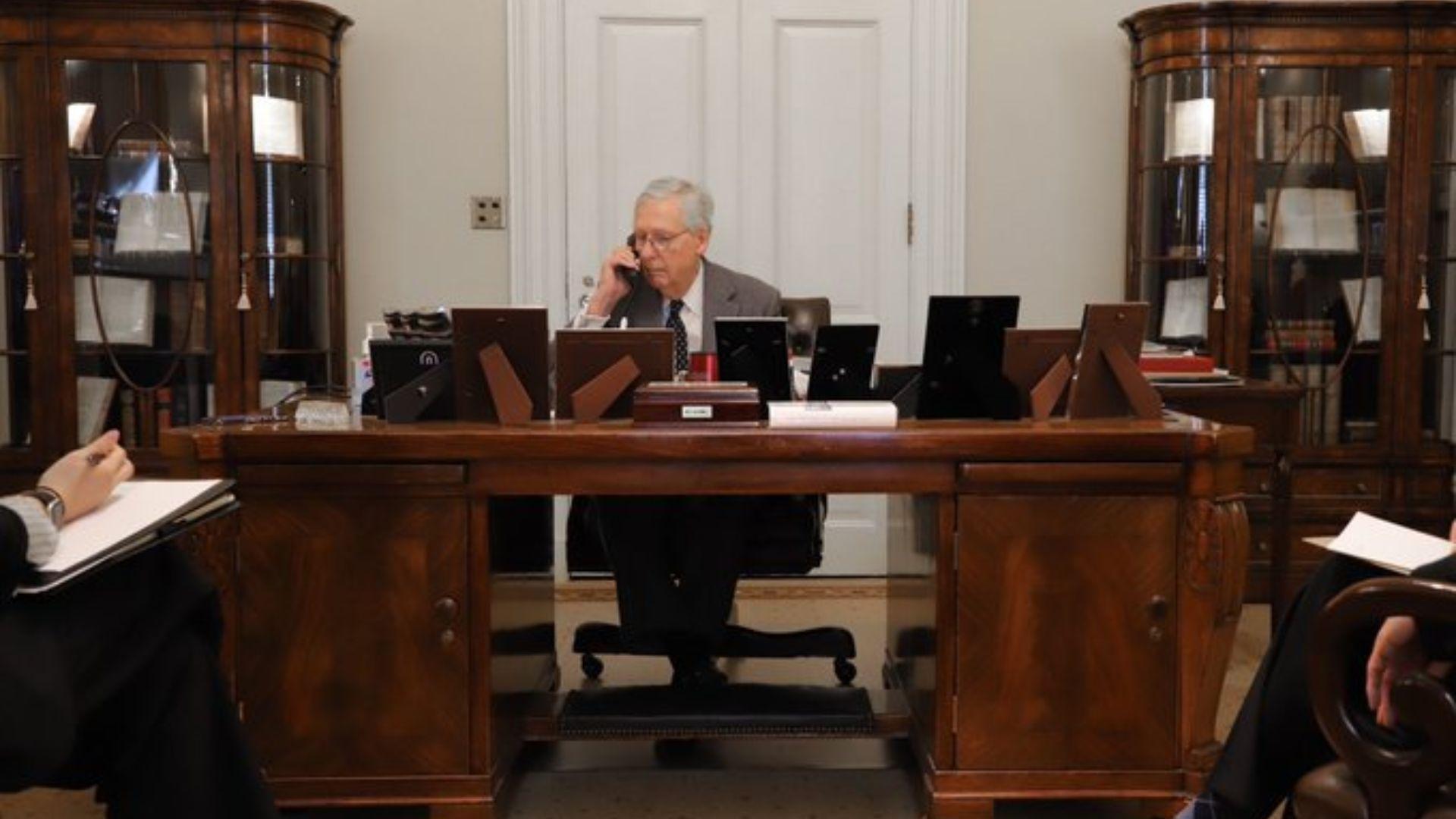
In late February McConnell announced that he would not seek another term as the leader of the Senate Republicans, which he has held for 17 years — historically making him the longest-serving leader of either party.
McConnell took time during the interview to declare that he will continue to serve out the remainder of his term in the Senate’s upper chamber.
Hanging on for a Cause
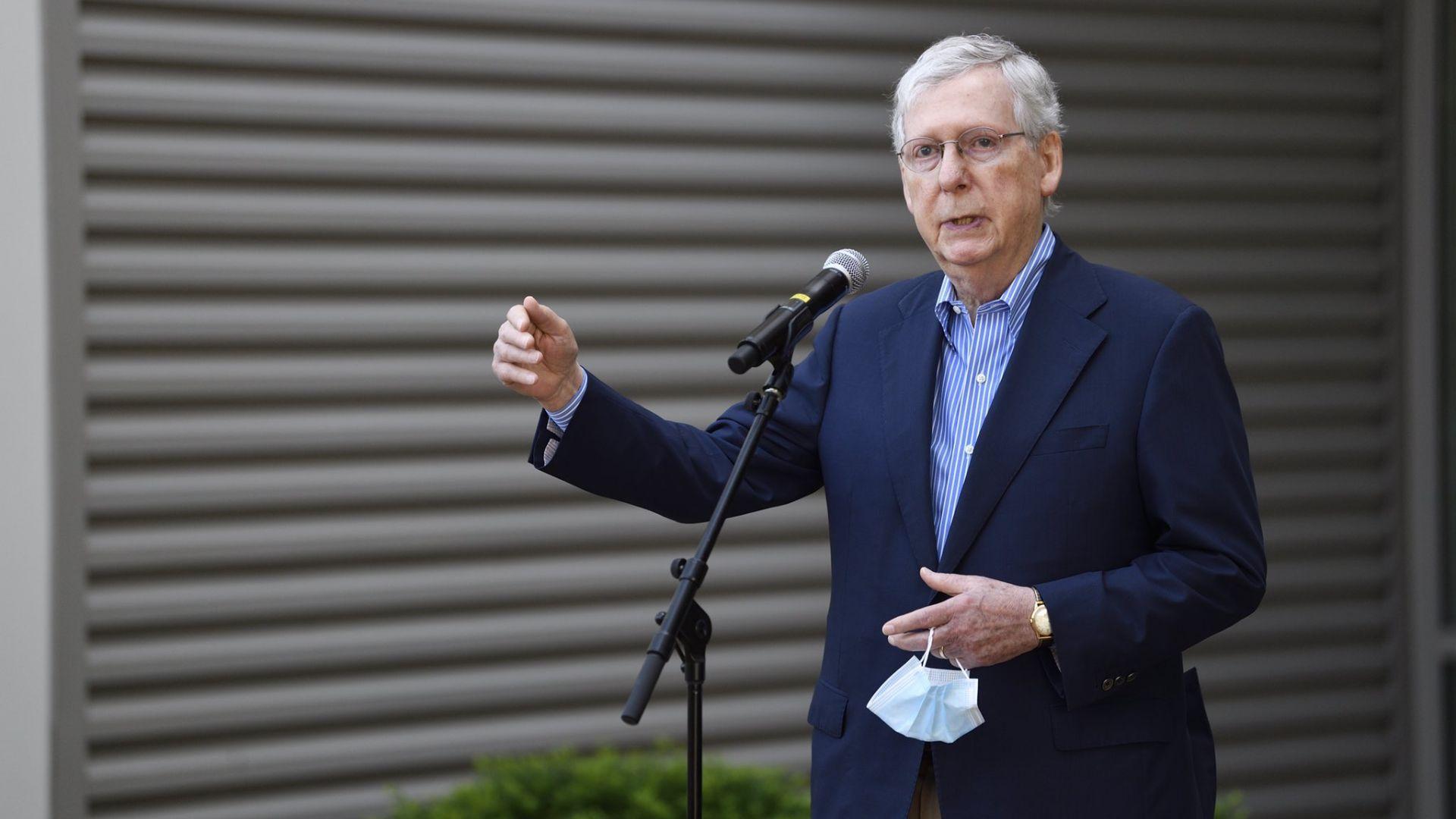
“I’m not leaving the Senate. And I’m particularly involved in fighting back against the isolationist movement,” said the 82-year-old. “For the next couple of years, it’s something I’m going to focus on.”
McConnell explained, “My party tends to be isolationist when there’s a Democrat in the White House.” Referring to the past he stated, “Most Republicans voted against Lend-Lease going into World War II and Pearl Harbor straightened that out.”
Strong Remarks Spark Backlash

The Kentuckian went on to add that American Citizens are experiencing “the most dangerous time for the free world since right [before] the Berlin Wall fell down.”
McConnell continued by addressing listeners, warning of a multitude of challenges facing the nation, listing geopolitical tensions, domestic disharmony, and economic uncertainty as major issues requiring immediate action.
Receiving Criticism and Pushback from Peers
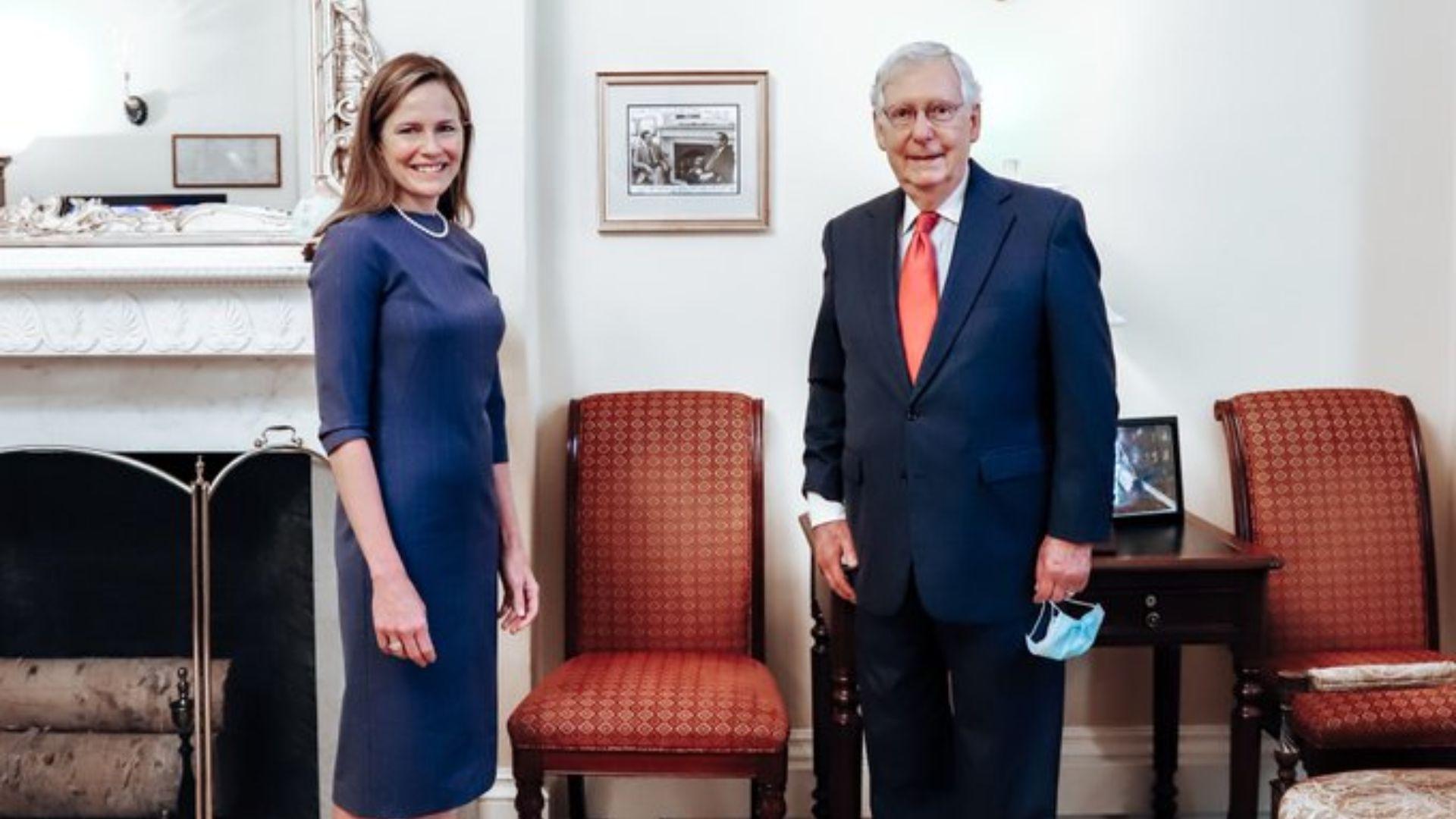
Analysts and experts alike have pushed back on his assertions, offering mixed assessments of McConnell’s claims.
Some argue that while the current geopolitical landscape is challenging, the comparisons to the Cold War era are an over exaggeration. Others contend that McConnell’s remarks reflect a broader trend of hyperbole and exaggeration in political discourse.
Online Criticism
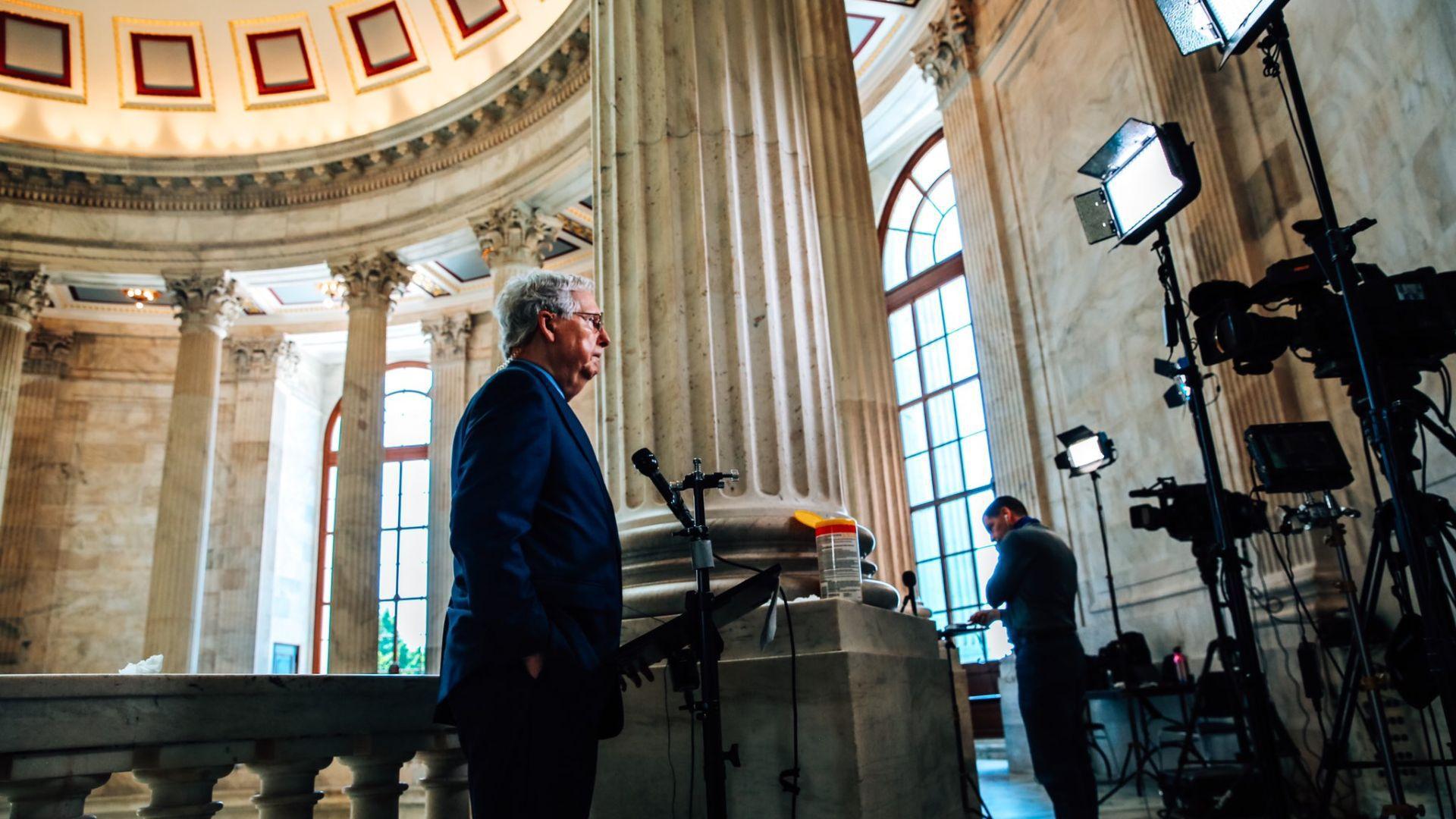
Users on X were quick to react to McConnell’s remarks. Reading between the lines when it came to his interview with Louisville’s NewsRadio 840.
One particularly annoyed X user commented: “The U.S. is in trouble *because* of him not *despite* him. We don’t need his phony rino *schiff* any longer. Resign now!” A sentiment felt by many who spoke on the interview.
Scathing Critique
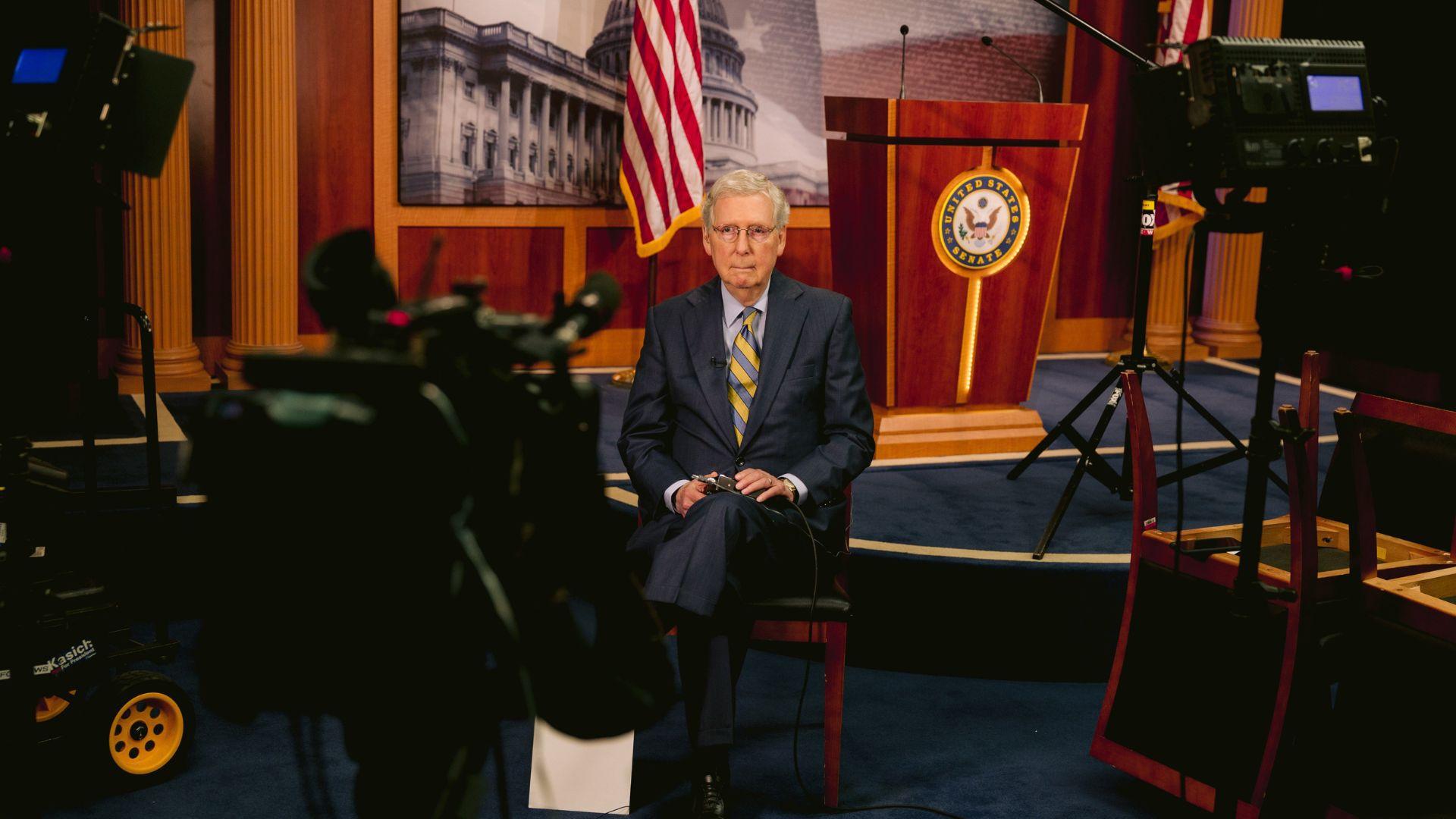
The band of those ready and willing to voice their opinions on McConnell’s role in the current state of affairs were plentiful.
Another disgruntled X user took to their account to state: “Guy stays in power so long he literally strokes out periodically during pressers and then reminds us all that he and his buddies ruined the country. Thanks, Mitch.”
Harsh Words
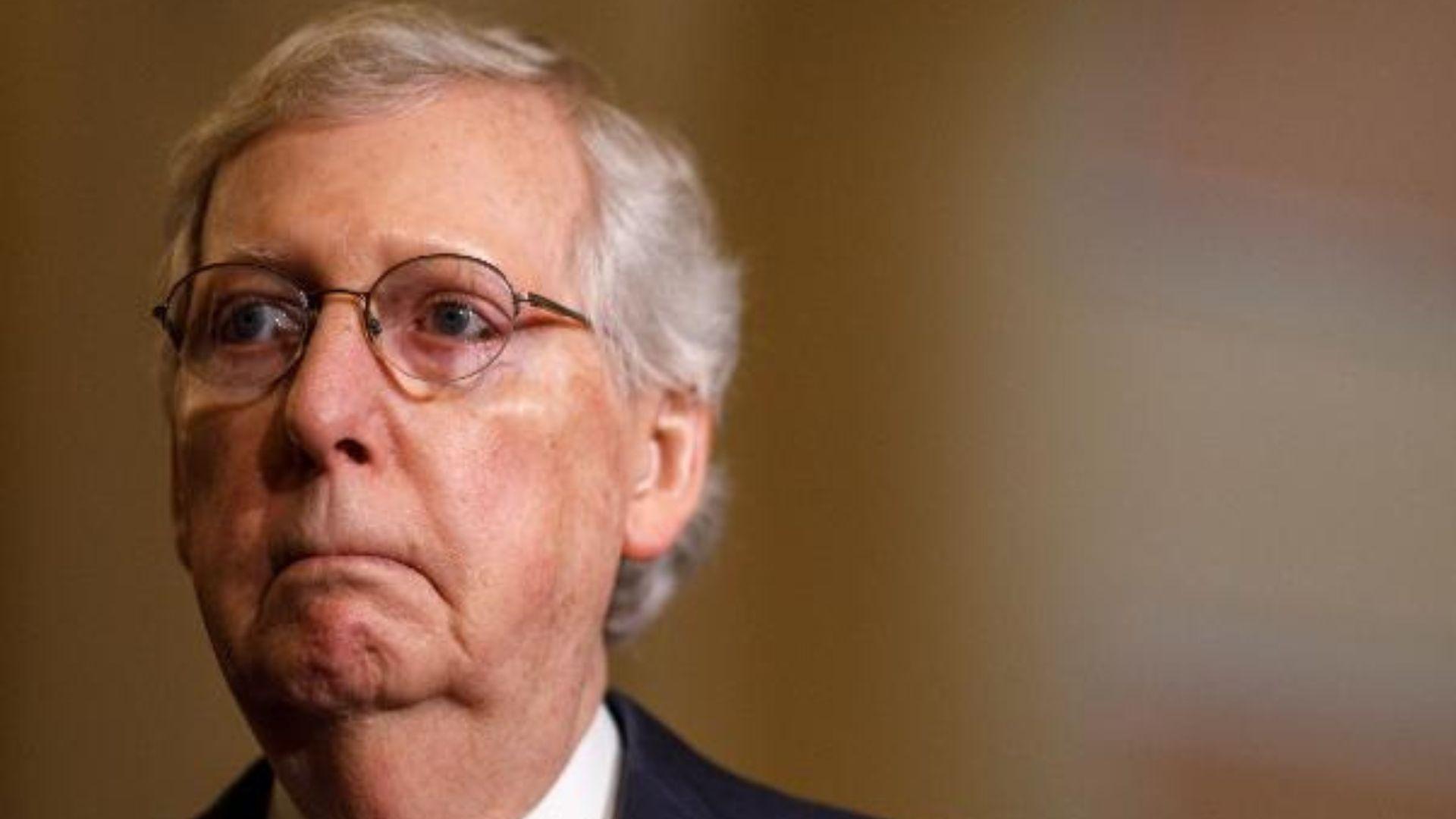
For some, criticism was extended beyond McConnell to include the GOP in general.
One X user aimed for McConnell and his party asserting: “He’s the reason we are in the shape we are in. All of them. He is the worst. He’s leaving his work in worse shape than he started, but much richer. Epic Fail. And a disgrace.”
McConnell’s D-Day Essay

Far from being deterred by this negative response, McConnell doubled down on his criticism of isolationists in a piece for the New York Times.
The guest essay titled “We Cannot Repeat the Mistakes of the 1930s” reflected on the 80th anniversary of D-Day, and warned of the parallels between today’s political landscape and that of the 1930s.
America Entered the War ‘As a Last Resort’
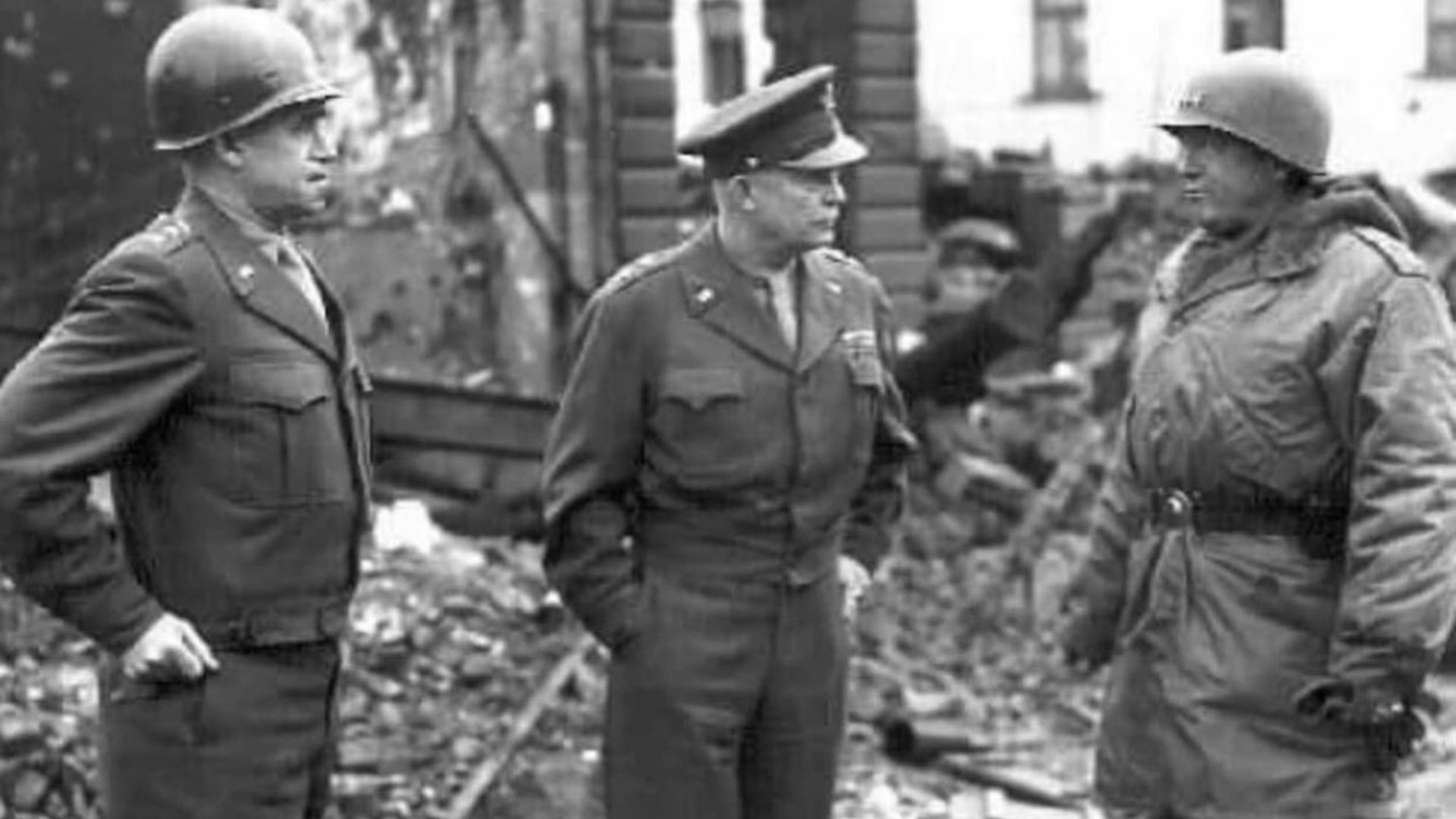
In the essay, McConnell lays out the landscape for America entering the Second World War. He writes that American servicemen joined the battle against the Axis powers “not as a first instinct, but as a last resort”.
When McConnell writes how 80 years ago U.S. soldiers “ended a war that the free world’s inaction had left them no choice but to fight”, one doesn’t have to read too far between the lines to see McConnell reinforcing his mission of championing support for Ukraine.
Apathy Bred Conflict

In the piece he mentions how in D-Day remembrance, people are quick to forget that the great toll paid during the war was incurred because the U.S. and European powers “met the rise of a militant authoritarian with appeasement or naive neglect in the first place”.
Again, McConnell is not too subtly drawing parallels with isolationist attitudes regarding America’s involvement with current global conflicts.
Political Forces Opposed U.S. Intervention

McConnell writes how “powerful political forces” at the time sought to influence policy by warping public perception regarding threats overseas.
He says these forces tried to minimize the danger that was growing around the world, refused to help America’s allies, and ultimately prevented the country from defending what he described as our own national interests.
The Isolationists Were Ultimately Forgotten
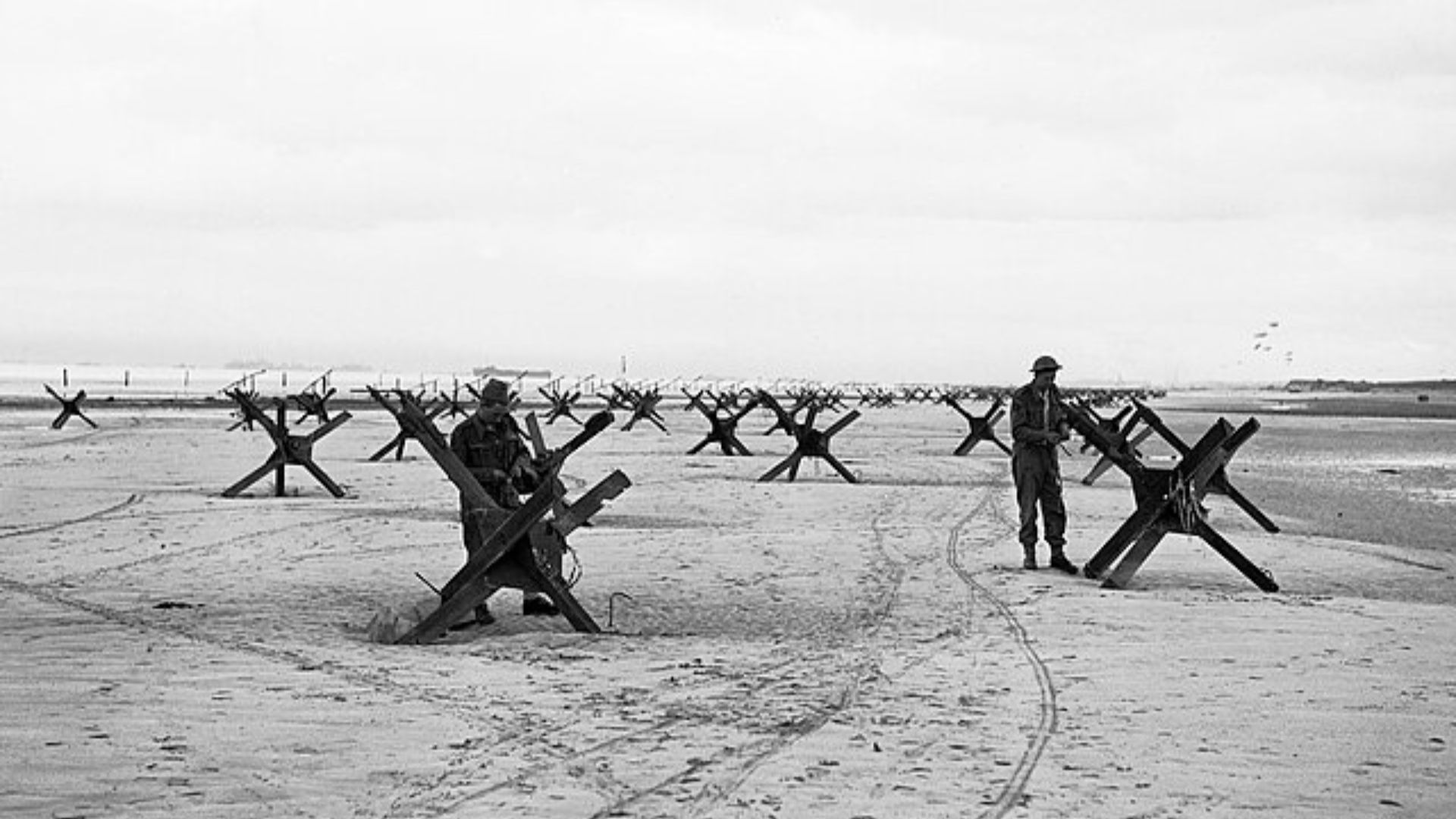
He writes how little is remembered of the “influential isolationists” of the time who worked to convince the public that the fate of our allies and partners didn’t matter much to our own prosperity and security.
It’s hard not to read this as a jab at political colleagues who have been outspoken in their apprehension and opposition to U.S. intervention in overseas affairs, particularly as relates to Ukraine.
Similar Sentiments to His Cold War Statements
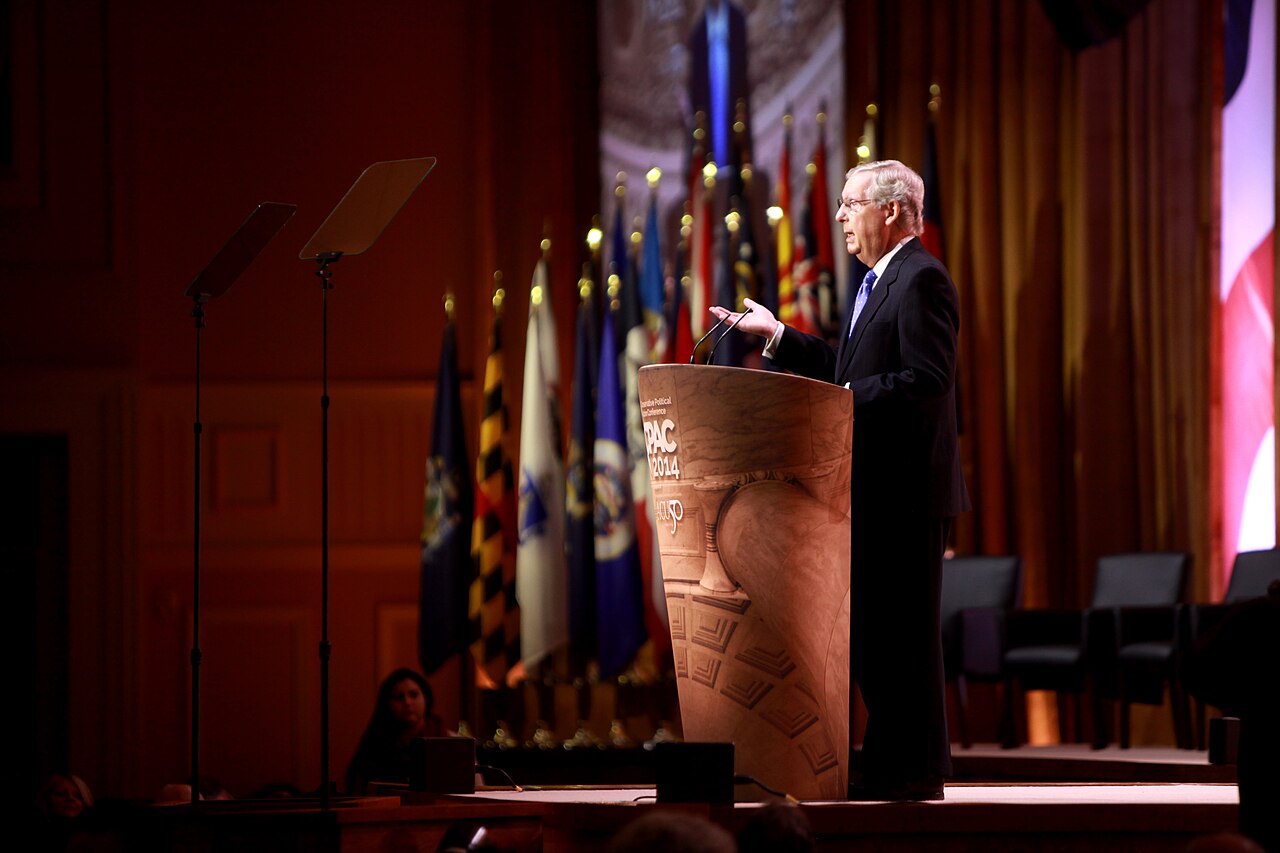
In the essay, McConnell seems to bring home his point by making comparisons very similar to the ones he made in his statements regarding Cold War tensions.
He states that “Today, America and our allies face some of the gravest threats to our security since Axis forces marched across Europe and the Pacific”.
Old Forces Have Re-Emerged

Drawing a clear parallel to the current political landscape, McConnell goes on to claim that “some of the same forces that hampered our response in the 1930s have re-emerged”.
There is nothing veiled when he directly challenges “vocal corners of the American right” who he says are trying to “resurrect the discredited brand of prewar isolationism and deny the basic value of the alliance system that has kept the postwar peace”.
It Shouldn’t Take Catastrophe to Change Opinion
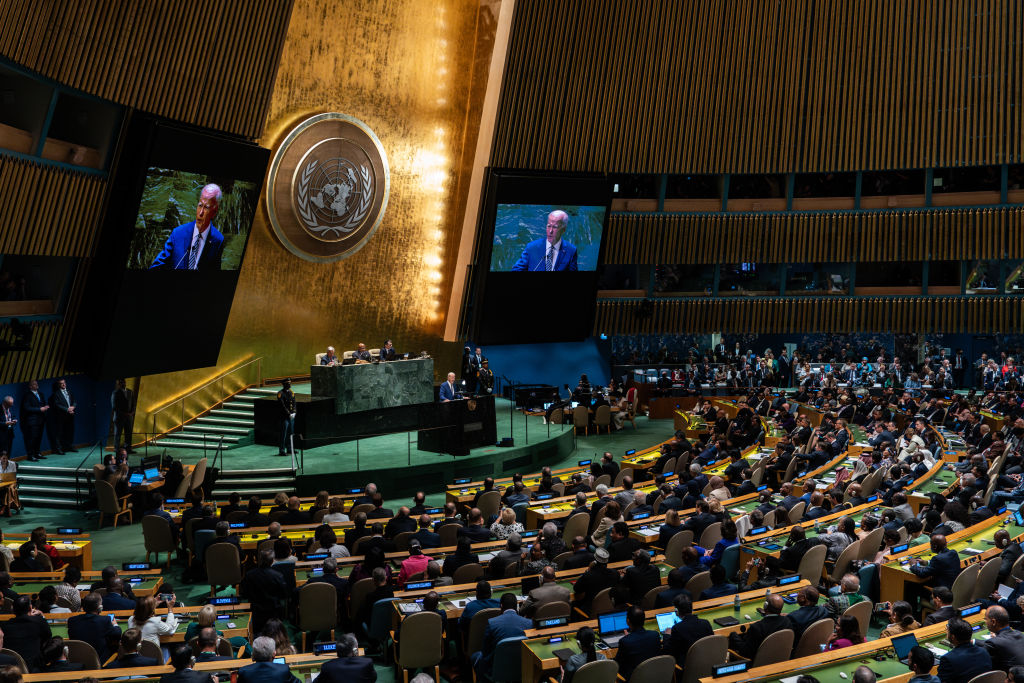
McConnell opines that it should not take a catastrophic event like the Pearl Harbor attack to “wake today’s isolationists from the delusion that regional conflicts have no consequences” for the U.S.
Remarking on America’s position in the world stage, he concludes that “With global power comes global interests and global responsibilities”.
McConnell’s Criticism of Tucker Carlson

McConnell has also called out those who he feels have cause growing isolationist feelings. He pointed the blame at Tucker Carlson for beginning the “demonization of Ukraine”, which led to anti-Ukraine sentiment among many in the Republican party.
The comments came in the build-up to the Senate approving a $95 billion foreign aid bill.
Heated Times
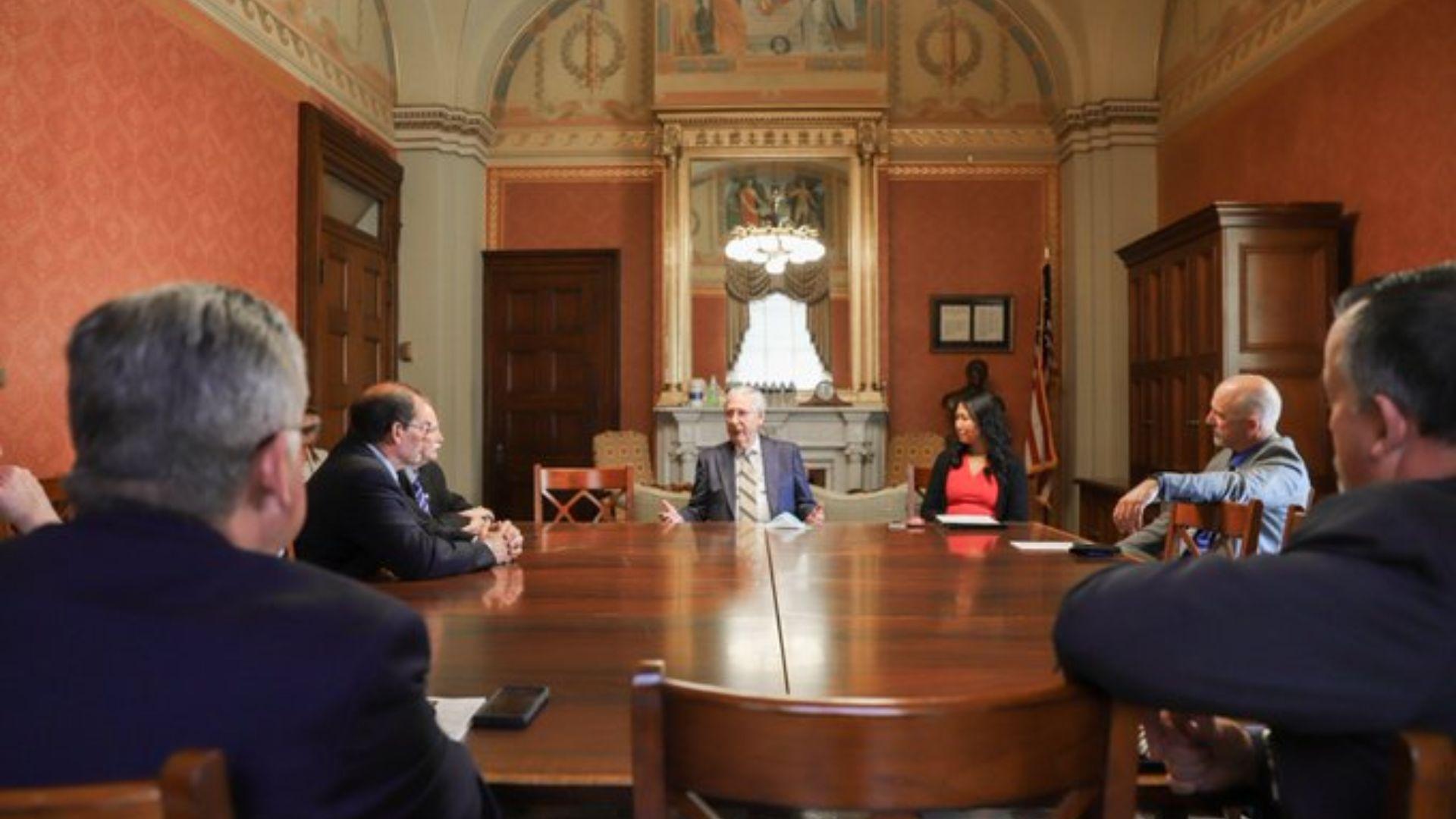
The controversy surrounding McConnell’s comments comes at a time of uncertainty and increased tension domestically and internationally.
The unease and apprehension can be felt globally. From the ongoing conflict in Eastern Europe to the persistent threat of terrorism abroad, many feel the impact of a world seemingly in crisis. To some, McConnnell’s sentiments only seem to fuel the fire.
Standing Firm
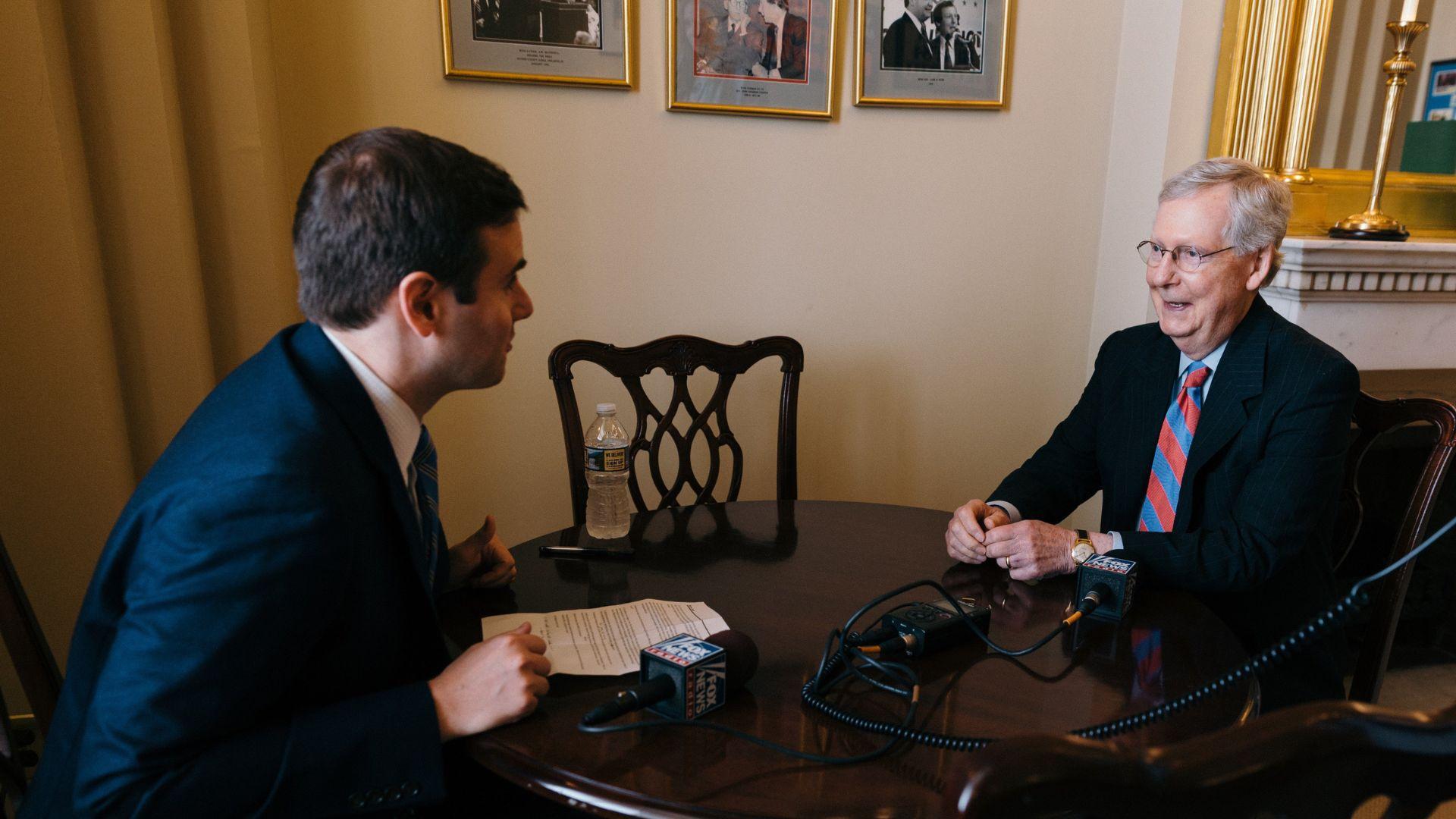
In spite of the backlash, McConnell stands by his remarks, insisting that the intention of his comparison was to emphasize the seriousness of potential disaster that is facing the nation.
In a statement in which he responded to his critics, McConnell reasserted his commitment to addressing pressing issues.Not one to shy away from speaking out, McConnell spoke on the importance of calling for bipartisan cooperation in finding solutions.
McConnell Sees Leadership as the Way Out
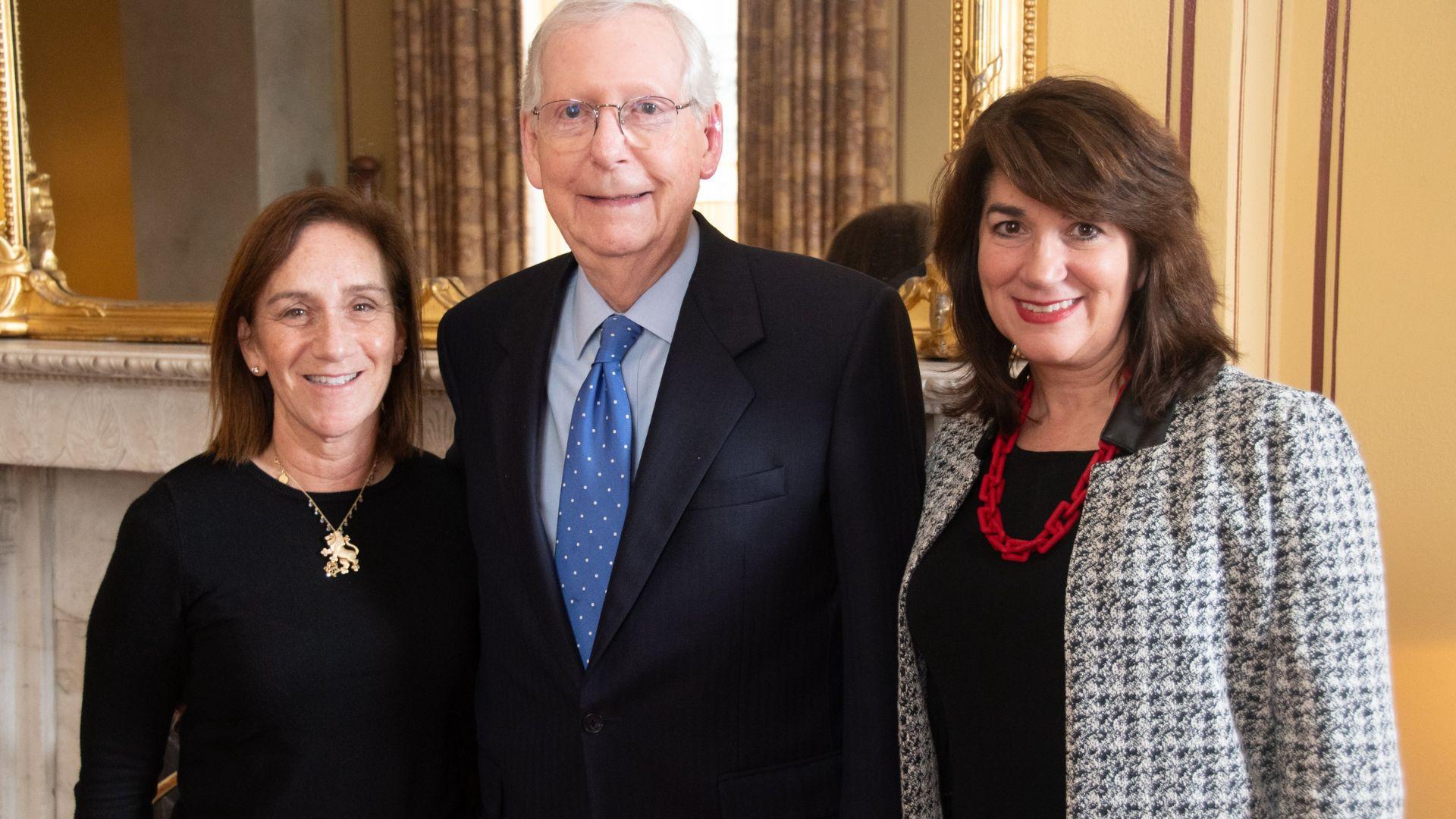
McConnell went on to emphasize that strong leadership and decisive action are needed in order to overcome the complex issues effectively.
In addition to working in his own capacity to counterbalance “isolationists” within the GOP, he is urging fellow members involved to consider the impact of changing their mindset when it comes to working together in times of crisis.
Polarizing Views on a Complexed Issue
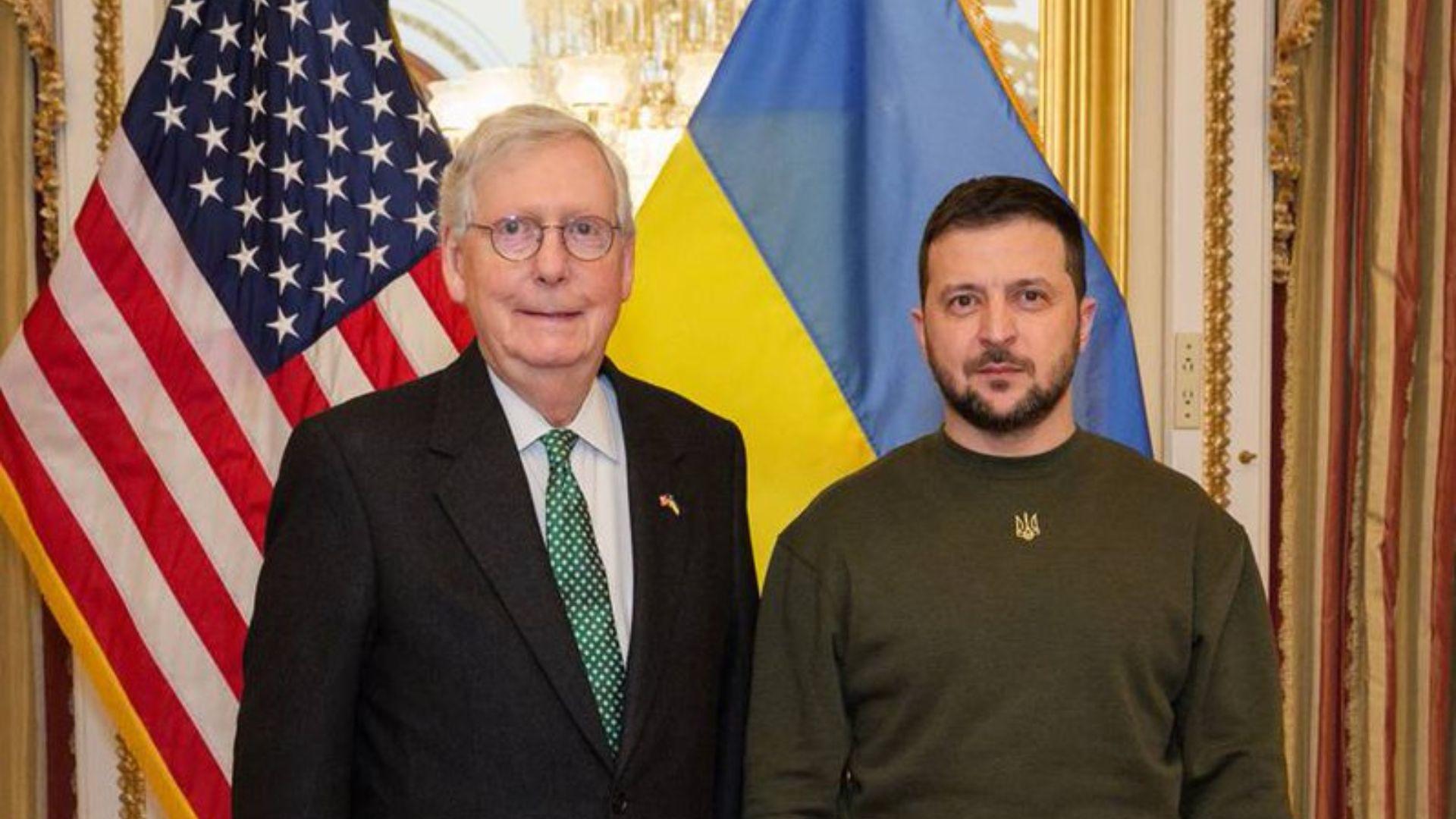
As the debate rages on, McConnell’s assertion serves as a reminder of the complex and often divisive nature of contemporary politics.
While opinions may differ on the severity of the current moment, one thing remains clear: the need for thoughtful and pragmatic leadership in navigating the challenges ahead.
McConnell and Trump
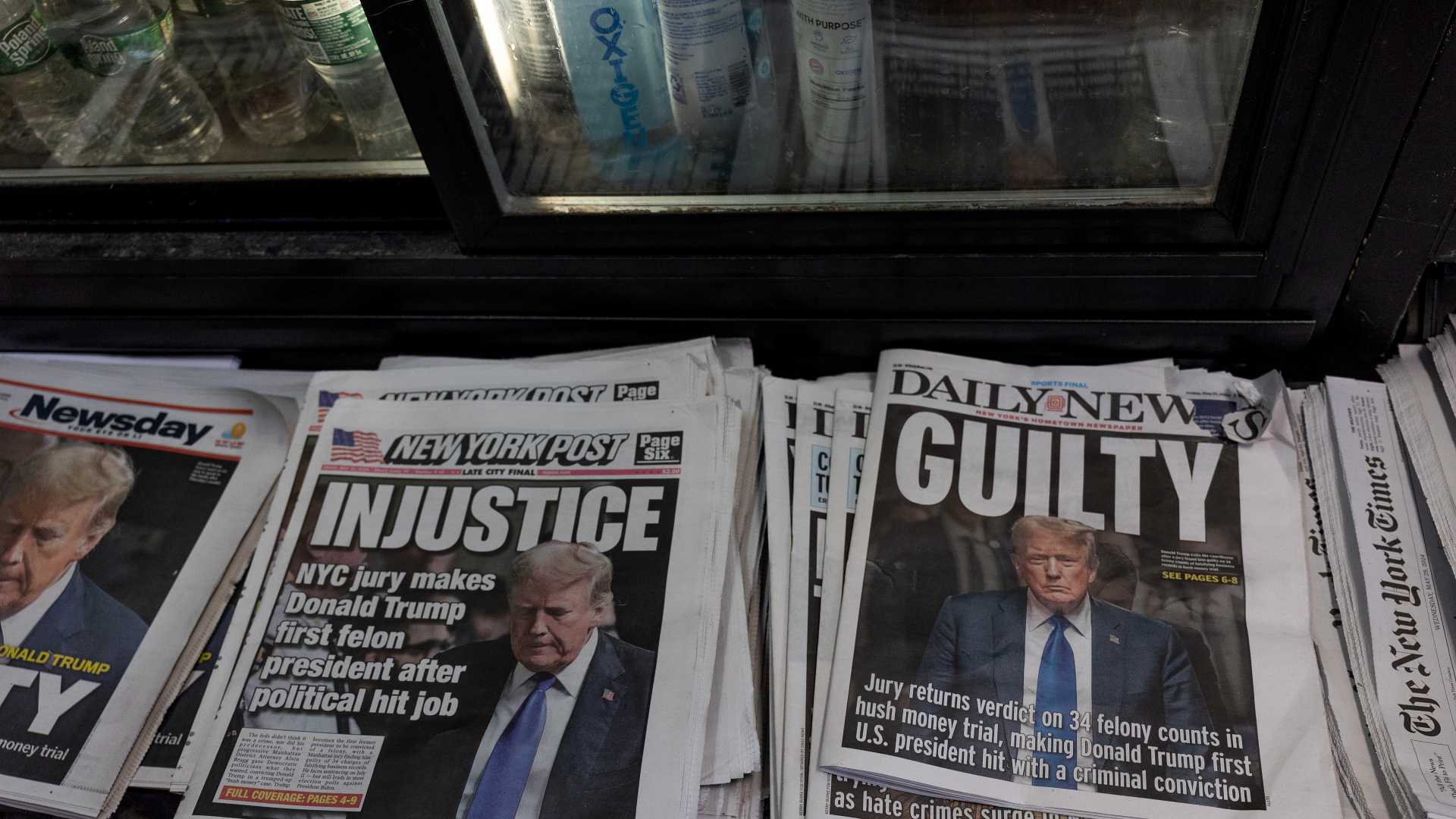
Tackling isolationists within the GOP won’t be the only major challenge McConnell faces during the remainder of his term as leader of the Senate Republicans.
McConnell has come to the defense of former President Trump in the wake of the guilty verdict in his hush-money trial, despite previously refusing to comment on the Presidential race or Trump’s situation.
A Trump U-Turn
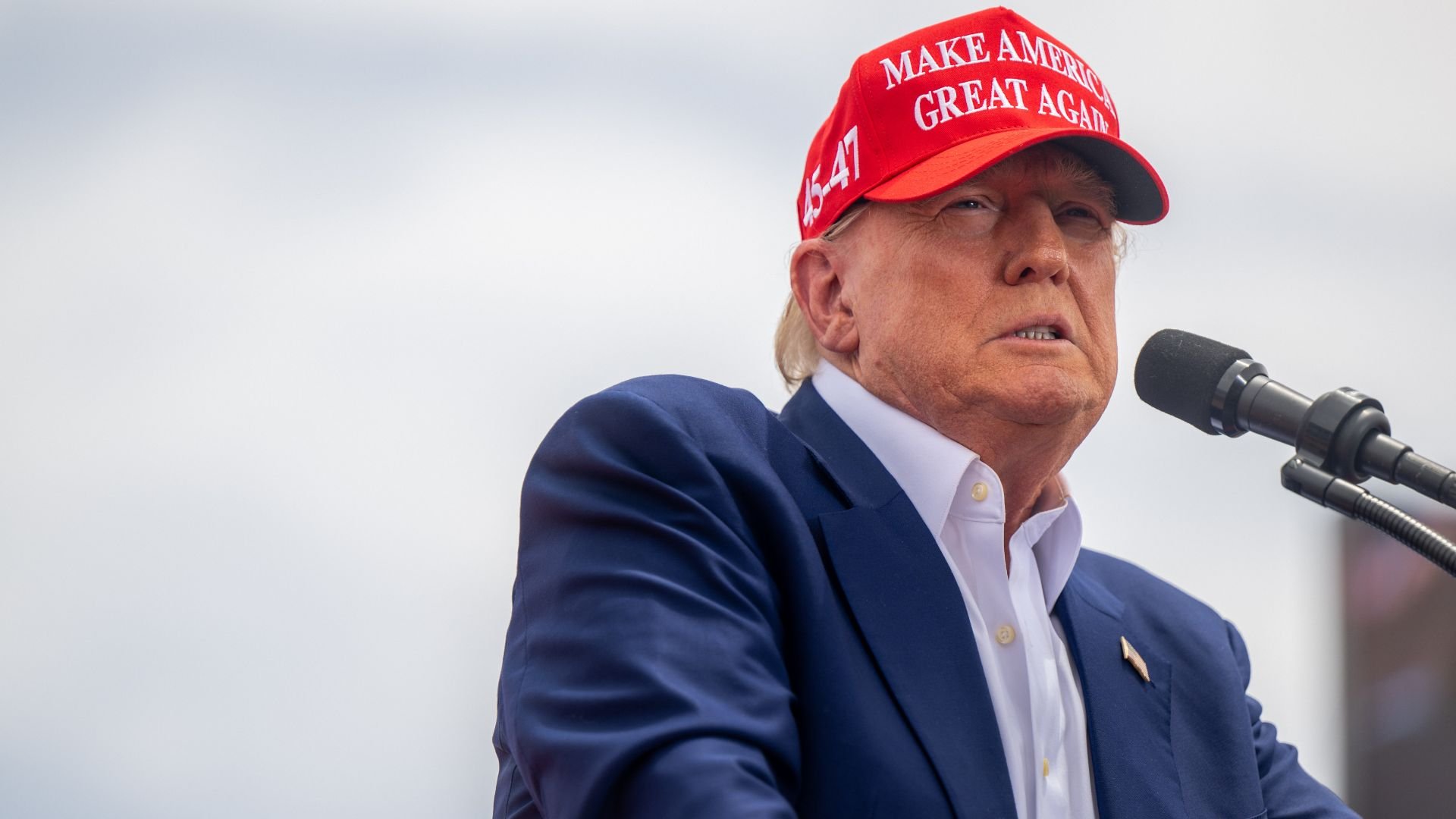
Taking to X, McConnell wrote that the charges against Trump “shouldn’t have been brought in the first place” and that he expects “the conviction to be overturned on appeal”.
This seems to be a bit of a minor course correction for McConnell, who previously stood by statements he made that former Presidents “are not immune” from prosecution.
An Interesting End to McConnell’s Tenure
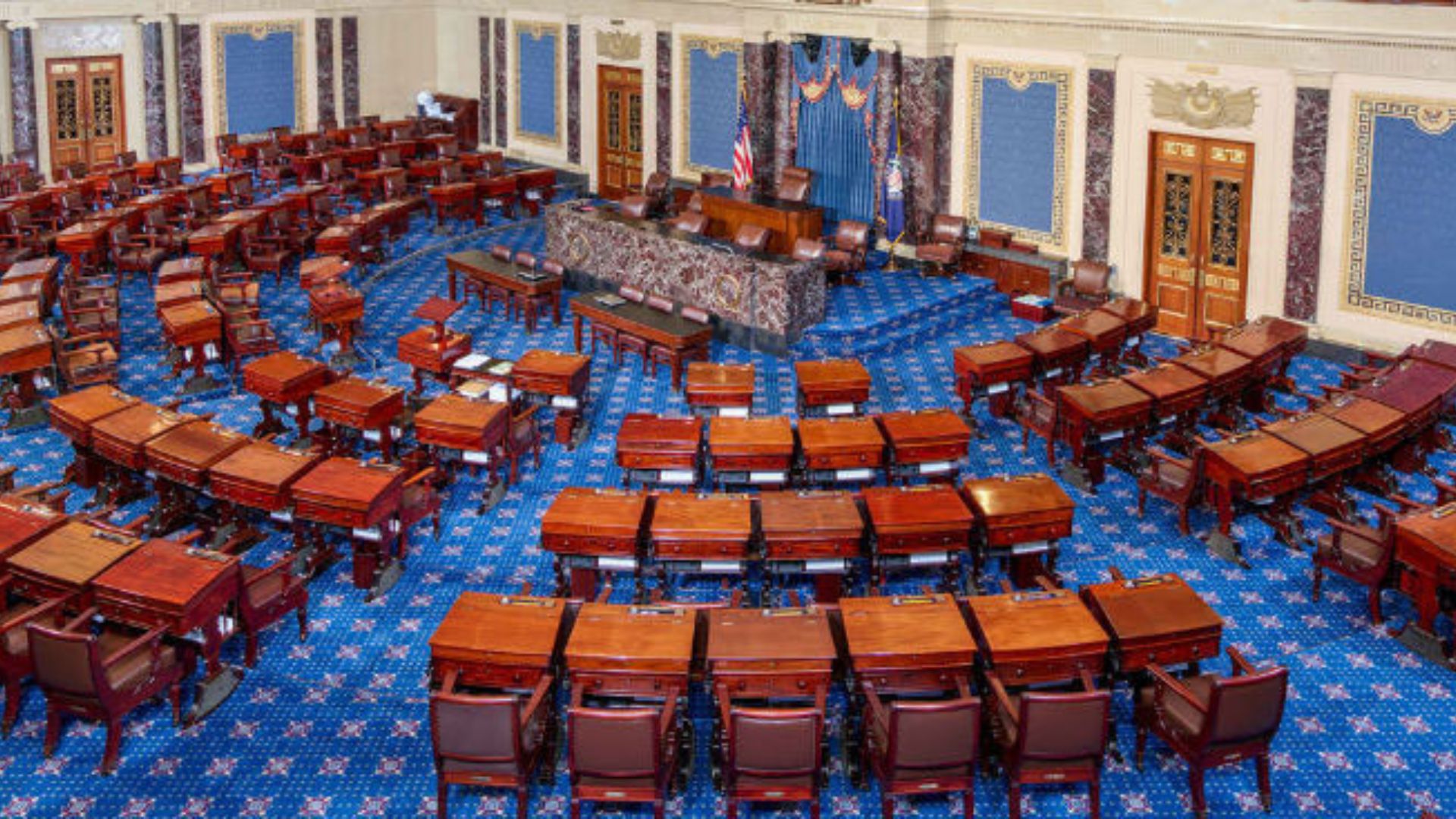
It looks like it will be anything but a quiet sendoff for McConnell as he ends his time as leader of the Senate Republicans. Though his opinions on rooting out Republican isolationists may be polarizing, they clearly come from a place of principle for him.
His assertion that strong leadership is the key to navigating these challenges may explain his apparent softening with regards to former President Trump, attempting to rally some unity in the GOP heading into the election.
